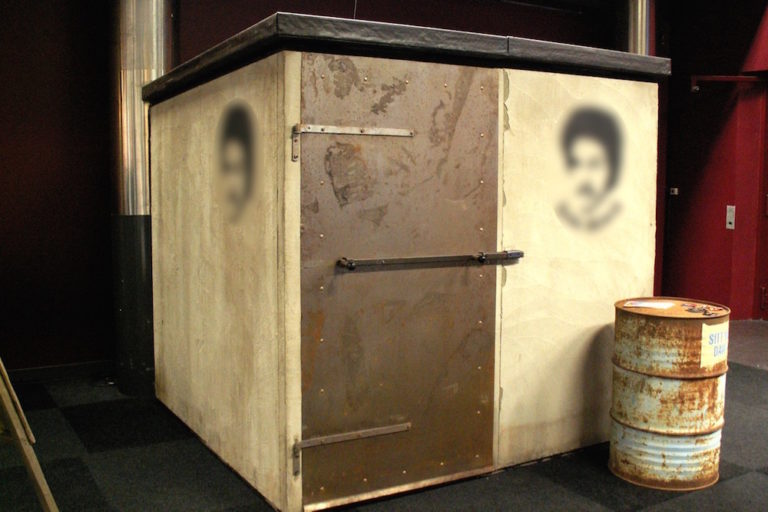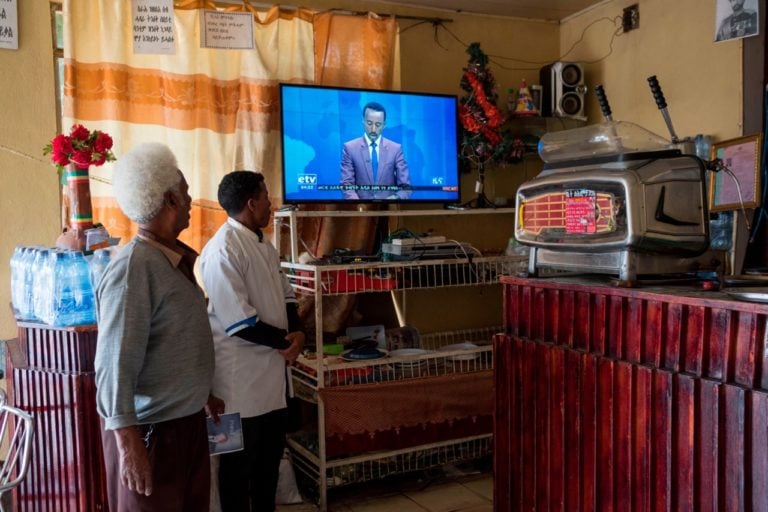Three years after the death of imprisoned journalist Fessehaye "Joshua" Yohannes, conditions for Eritrean detainees remain among the most disturbing in the world.
(RSF/IFEX) – On 11 January 2010, the third anniversary of Eritrean journalist Fessehaye “Joshua” Yohannes’ death in detention, Reporters Without Borders wrote to Manfred Nowak, the United Nations Special Rapporteur on torture and other cruel, inhuman or degrading treatment or punishment, asking him to do everything possible to obtain an improvement in the conditions of journalists imprisoned in Eritrea.
“The conditions in which Eritrean detainees are held are among the most disturbing in the world,” the letter said. “The situation is made all the more appalling by the fact President Issaias Afeworki’s government, which has become the disgrace of Africa, refuses to provide any information about them. This is why we ask you to do everything possible to obtain news from the authorities and, if possible, to go to Eritrea.”
Voicing great concern about the 26 journalists and two media workers currently held in Eritrea, the letter continued: “We urge you to request access to the imprisoned journalists in order to enquire about their state of health and about prison conditions in Eritrea. We also ask you to put enough pressure on the Eritrean government to ensure that they are tried or released.”
A writer and playwright as well as a journalist with the now-banned weekly “Setit”, Fessehaye succumbed on 11 January 2007 to the especially harsh conditions in which he had been held in the Eiraeiro detention centre in the desert of Northern Red Sea province for most of the time since his arrest in 2001. His body was never handed over to his family.
He was arrested when he surrendered to the police during the week of 18-23 September 2001, after around 10 other journalists and many members of the political opposition had been arbitrarily arrested and the privately-owned press had been “suspended” by the authorities. A veteran of the independence war against Ethiopia and head of a dance and theatre troupe, he was a leading intellectual figure in political and media circles.
After verifying with credible Eritrean sources in Asmara and abroad, Reporters Without Borders is in a position to say that Fessehaye was the fourth journalist to die in Eiraeiro, following Said Abdulkader, co-founder and editor of the weekly “Admas”, Medhane Haile, co-founder and deputy editor of the weekly “Keste Debena”, and Yusuf Mohamed Ali, the editor of the weekly “Tsigenay”. The other three died in 2005 and 2006. Reporters Without Borders has decided to withdraw these four names from its list of journalists imprisoned worldwide.
Those currently detained in Eritrea include Dawit Isaac, a journalist with Swedish and Eritrean dual nationality who worked for the newspaper “Setit” and who was one of the three finalists for the 2009 Sakharov Prize for Freedom of Thought. He has health problems, has been transferred several times and was taken to the air force hospital in Asmara in 2009. According to the latest information obtained by Reporters Without Borders, he was also admitted to Asmara’s Habtemariam (St. Mary) Hospital, a psychiatric clinic, twice in 2009. It is not clear where he is being held now.
The same uncertainty surrounds the current situation of Temesghen Gebreyesus, a sports journalist and member of the board of the biweekly “Keste Debena”, and Mattewos Habteab, co-founder and editor of the biweekly “Meqaleh”. Both were transferred to a prison in the Dahlak Islands (located in the Red Sea off Massawa) in December 2008.
Reporters Without Borders regards the sanctions imposed on Eritrea by the UN Security Council on 23 December at Uganda’s suggestion as “very positive” and reiterates the recommendation it has been making to the European Union for several years that it should ban senior Eritrean civilian and military officials from entering the EU.
Copies of the Reporters Without Borders letter were sent to:
– Navanethem Pillay, United Nations High Commissioner for Human Rights
– Franck La Rue, United Nations Special Rapporteur on the promotion and protection of the right to freedom of opinion and expression


